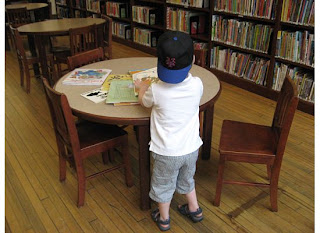Friday Find: Post-MFA Fellowships
Here’s a goodie from our archive: a compilation of fellowship and writer-in-residence positions of particular interest to new/recent MFA grads. Enjoy, and have a great weekend!
Here’s a goodie from our archive: a compilation of fellowship and writer-in-residence positions of particular interest to new/recent MFA grads. Enjoy, and have a great weekend!
Just wanted to follow-up on my earlier mention of The Atlantic‘s latest fiction issue and point you to some of the work I most enjoyed and am still thinking about. You can access each piece here.
–“The Laugh,” a story by Téa Obreht (see also the interview with Obreht)
–“Furlough,” a story by Alexi Zentner (see also the interview with Zentner)
–“Eyes on the Prize,” an essay by Alice Sebold adapted from The Best American Short Stories 2009.
Have you had a chance to read the issue yet? What impressed you? Please share, in comments (but do recall that I will be on the Internet only intermittently this week and therefore it may take some time for your moderated comment to appear).
Congratulations to newsletter subscribers Adrienne Ross and Carol Bowman on their recent successes.
Adrienne’s essay, “Startling Epiphany,” took third place among prose submissions in this year’s Portia Steele Awards. And Carol’s story, “Repairing a Broken Doll,” appears in the latest Workers Write! anthology, Tales from the Couch.
As always, please remember that I LOVE hearing about successes that come your way via a discovery in our newsletter or on this blog. Please, please, share your good news, and let me brag about you!
 Today is my nephew’s third birthday. Like his older sister, little S. gives me endless joy, love…and ideas to think and write about.
Today is my nephew’s third birthday. Like his older sister, little S. gives me endless joy, love…and ideas to think and write about.
As fortunate as he is, my nephew hasn’t had the easiest start. Perhaps his greatest challenge is childhood apraxia of speech (CAS). If you’re not familiar with this motor speech disorder, you’re not alone: I hadn’t heard of it before S. was diagnosed.
In the words of the American Speech-Language-Hearing Association, “Children with CAS have problems saying sounds, syllables, and words. This is not because of muscle weakness or paralysis. The brain has problems planning to move the body parts (e.g., lips, jaw, tongue) needed for speech. The child knows what he or she wants to say, but his/her brain has difficulty coordinating the muscle movements necessary to say those words.” (You can also learn a lot about CAS from the Childhood Apraxia of Speech Association. And I’ll refer you to this post on my sister’s blog for additional personal insights.)
His language obstacles notwithstanding, my nephew is already an avid bibliophile (he’s pictured here on a recent library visit–photo credit courtesy of his mom). Children with apraxia of speech commonly encounter difficulties in learning to read, spell, and write as well as in learning to speak. So his road to full immersion in the world of words that means so much to me is likely to be significantly slower than I’d like it to be. At the same time, however, in these three years he has brought such added richness and joy to my life, and to the lives of all his family members (and, I daresay, to his dedicated therapists, who seem to find him as sweet and beguiling as we do!), that, despite all my degrees and publications, I can’t begin to describe in words myself.
Happy Birthday to my precious nephew, with my love always.
I remember, growing up, listening to the weekly radio broadcast of early Friday evening Shabbat services live from New York’s Temple Emanu-El. This was, of course, in the days before the Internet.
But now that we are living in an Internet society, services can be accessed online. Or, at least services held at Temple Beth Or in Morristown, N.J., can be accessed online.
According to the New Jersey Jewish News:
“Since May, the synagogue has been streaming its Shabbat services on Friday evenings and some Saturday mornings on a live webcast available to anyone with Internet access.
That puts B’nai Or in the vanguard of high-tech shuls. A search using — what else — the Internet revealed only two other synagogues with such an offering: Temple Emanu-El in Birmingham, Ala., and Shaarey Zedek Synagogue in Winnepeg, Canada.”
It’s a really interesting development, and, according to the article, one that is not limited to Jewish congregations.